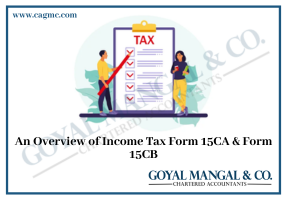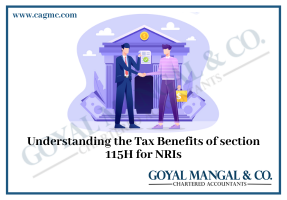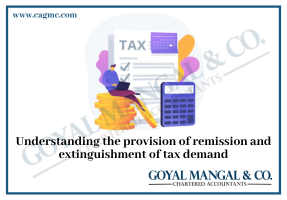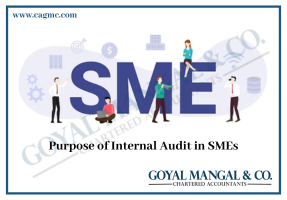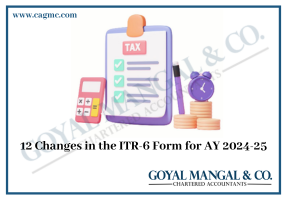
Many salaried and retiring taxpayers have filed their Income Tax Return (ITR) and are obliged to make certain mistakes due to the lack of proper knowledge of tax laws, which is difficult however for even tax professionals. In this article, we will discuss revenue as part of a tax return but most taxpayers do not include these incomes in their tax returns.
|
Table of Content |
Interest Income
Many taxpayers think that the interest earned on banks and post offices is exempt. Interest earned on bank deposits, bonds, and other small savings plans is fully taxable. Even interest-saving bank balance is fully taxable and should be reported under the heading “Revenue from other sources” on the tax return.
TDS must be deducted from the banking company or post office by any person with interest paid or credited to the taxpayer for a year amounting to Rs. 40,000 or more. Even if TDS can be deducted, it does not mean that interest income is exempt. All interest payments are reported to the tax department by the interest payer.
Some taxpayers even believe that no tax is payable if their bank deducts interest TDS. This is also a misconception. TDS is only 10% of interest (20% if PAN is not provided). If the taxpayer is in the higher tax rate, you need to pay additional interest tax. Check your interest for your financial year interest on Form 26AS. It will contain TDS details deducted from interest payments. If the interest income comes to Rs. 40,000 then it may not be shown on Form 26AS. Taxpayers are required to collect Interest Certificates from banks.
Revenue declared in your tax administration must be equal to and above the information in Form 26AS, otherwise, you are eligible for a tax notice. (Interest rates stated in your ITR cannot be less than the information in Form 26AS).
There are interest rates exempt from income tax such as interest on tax-free bonds, PPF, and Sukanya Samriddhi Yojana. You should also report this interest income on your tax return. Taxpayers may require a deduction under section 80TTA up to Rs. 10,000 in respect of deposit interest (excluding fixed deposit) in a bank savings account, post office, and cooperative organization. However, the deduction limit for senior citizens is Rs. 50,000 in respect of deposit interest including a fixed deposit under section 80TTB.
Rental Income
Rent earned on a commercial or real estate is also taxable. After allowing a 30% deduction from rental income, the balance is taxable under the heading “income from property“.
However, interest on a loan is allowed as interest on a collective basis, if the loan is for buying, building, repairing, renovating, or rebuilding a home.
Capital Gain
We all know that income from salary, rent, and business income is taxable. But what about the proceeds from the sale or purchase of shares whether they are quoted or not quoted, real estate, mutual funds, jewelry? Profits/Losses from equity share sales are listed under the heading ‘Money Profit’. There are a few people who are taking stock of securities and shares in recent years, financial gains are now commonplace. If equity shares are listed on a stock exchange that is sold after 12 months of purchase, the seller may incur significant long-term profits or long-term losses and in the case of holding shares for less than 12 months and then short-term cash loss or gain occurs.
Short-term profits are taxable at 15%. A special 15% tax rate applies to short-term capital gains, regardless of your tax status. Also, if your taxable income other than short-term benefits is less than the taxable income of Rs 2.5 lakh – you can rectify this deficit by comparing your short-term benefits. The remaining short-term profits will be taxed at 15% + 4% on it. A long-term interest rate of more than Rs 1 lakh on the sale of equity shares or units focused on mutual fund equity will attract a maximum interest rate of 10% and the reference profit will not be available to the trader. Short-term capital losses from equity shares may be reduced by earning short-term or long-term capital gains on any larger asset. If the loss is not fully stopped, it can be continued for 8 years and adjusted against any major short-term or long-term financial gains made during these 8 years.
Gift Income
A person is not able to apply tax income and therefore does not report the same to his or her tax administration. According to the Income Tax Act, the amount of unforeseen income exceeds Rs.50, 000, the total amount of such taxable tax. If the amount is less than Rs.50, 000 nothing will be taxed. For Rs. 50,000 all jobs for the past year will be considered. However some exceptions have been made in some cases when the gift is received by a relative and during the wedding. You should also report these revenues to your tax return.
Dividend Income
Since the removal of the dividend tax, dividends are now fully taxed at the hands of the recipient from the 2020-21 financial year under the heading “Revenue from other sources”. Companies are required to deduct TDS at a rate of 10% from the announcement and payment of interest above Rs. 5000 per year.
Final words
So in the above discussion, it is clear that there are different income items that you have not used all these years. Start adding this to your ITR from this year and make a fresh start. This will help you to start planning for the next financial year to take full advantage of all tax planning options. So don’t forget to include these incomes in your income tax return.
.
